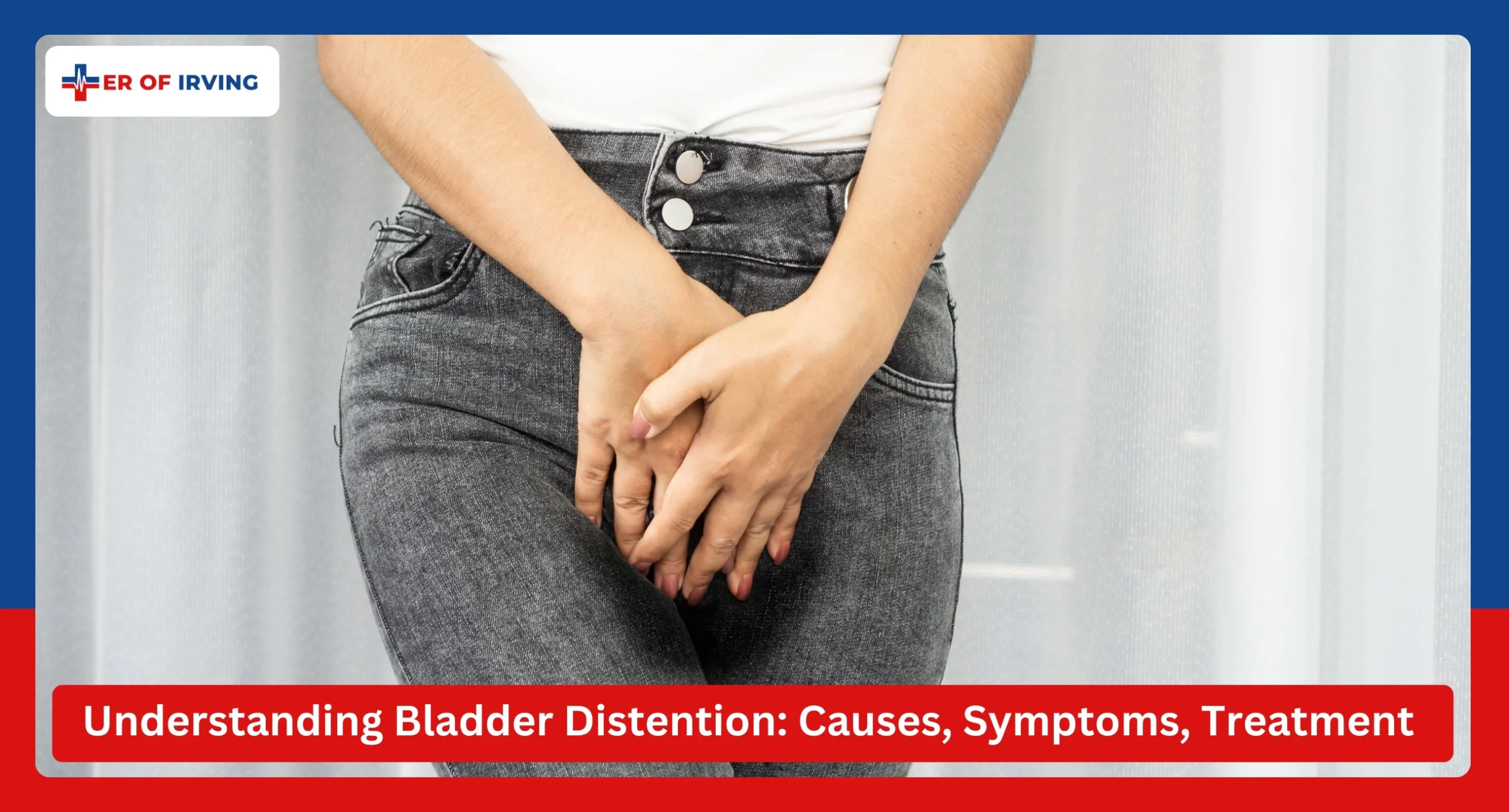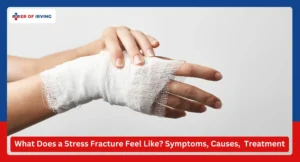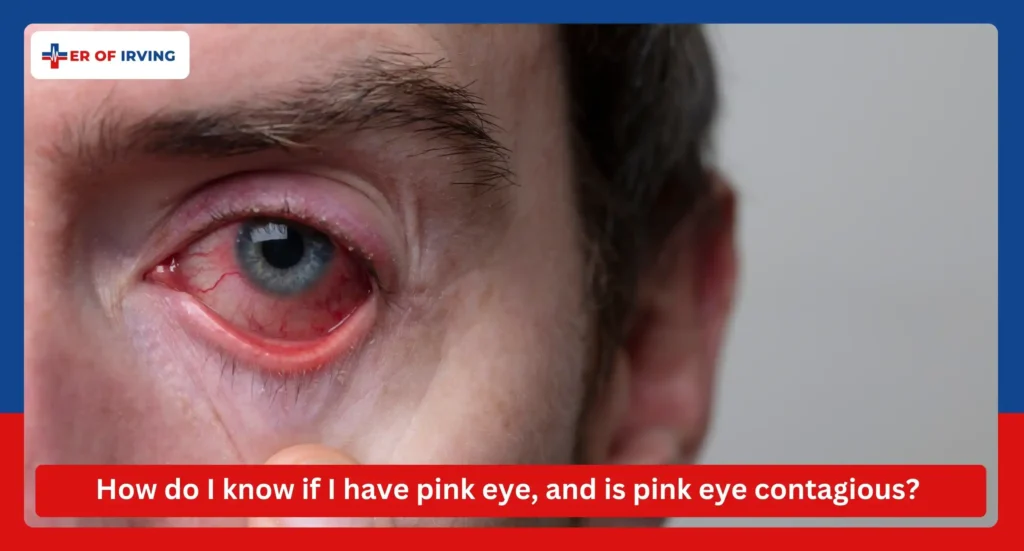Bladder distention, a condition where the bladder becomes overly stretched due to an inability to empty properly, can cause significant discomfort and health concerns. At ER of Irving, we are committed to providing emergency evaluation and initial stabilization for individuals experiencing this issue. Understanding the causes, recognizing the symptoms, and knowing the available treatment options are essential for seeking timely care.
What is Bladder Distention?
Bladder distention occurs when the bladder accumulates excess urine, stretching its walls beyond normal capacity. This condition often stems from blockages, nerve dysfunction, or inflammation, preventing proper emptying. Unlike overactive bladder, which involves frequent urination urges, distention is marked by a persistent feeling of fullness. At ER of Irving, our 24/7 emergency care team offers initial assessment and diagnostic services to identify this condition, followed by coordination with specialists for further management.
Causes of Bladder Distention
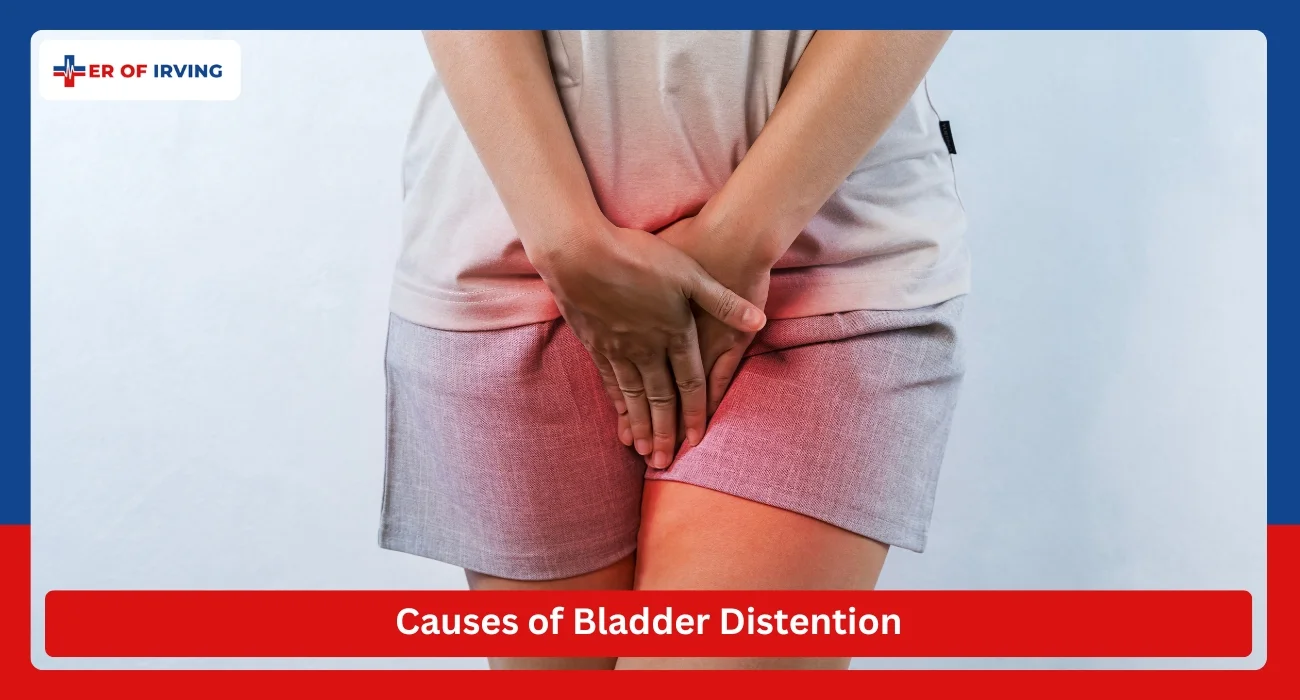
Several factors can lead to bladder distention, each requiring careful evaluation. One primary cause is urinary tract obstruction, commonly linked to benign prostatic hyperplasia (BPH) in men or pelvic organ prolapse in women. These blockages hinder urine flow, causing the bladder to overfill. Neurological conditions, such as multiple sclerosis or spinal cord injuries, can disrupt nerve signals that control bladder function, contributing to distention. Severe urinary tract infections (UTIs) may also inflame the bladder, impairing its ability to contract effectively.
Lifestyle factors can exacerbate the risk. Excessive consumption of fluids, particularly irritants like caffeine or alcohol, may overstretch the bladder if not voided regularly. Post-surgical effects, especially after procedures involving anesthesia, can temporarily affect bladder control. Additionally, obesity and diabetes play roles, with excess weight straining the pelvic floor and diabetes impacting nerve and muscle health. At ER of Irving, our team conducts emergency diagnostic services to pinpoint these causes, ensuring stabilization and specialist referrals as needed.
Symptoms to Watch For
Recognizing bladder distention symptoms is critical for seeking prompt care. The most noticeable sign is a persistent pressure or fullness in the lower abdomen, even after attempting to urinate. This discomfort can progress to pain if the bladder remains overstretched. Patients may experience frequent urination urges with minimal output or difficulty initiating urination. Urinary incontinence or overflow leakage can occur when excess urine escapes an overdistended bladder.
Additional symptoms include lower back pain, a weak urine stream, and, in severe cases, abdominal swelling or nausea. Untreated distention may lead to complications like kidney damage or infections. At ER of Irving, we urge individuals noticing these signs to visit our facility for emergency evaluation and coordination with specialists to prevent long-term issues.
Diagnosis at ER of Irving
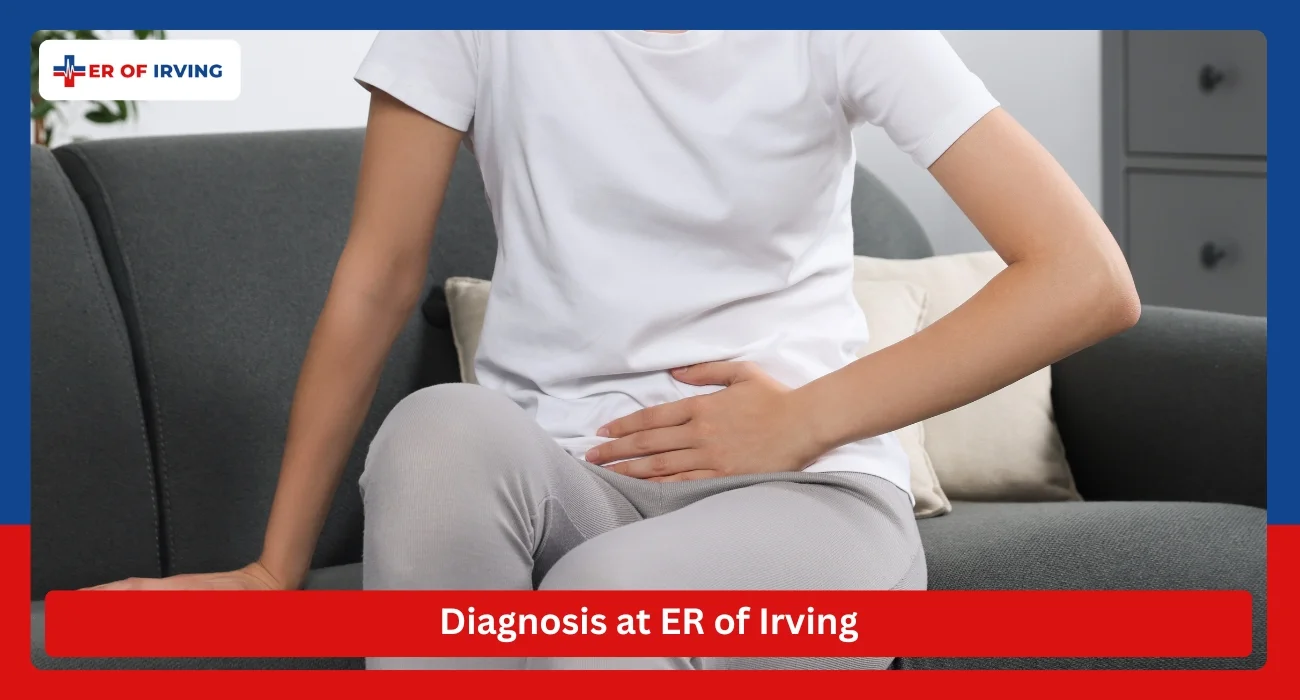
Diagnosing bladder distention involves a thorough process tailored to emergency settings. Our team at ER of Irving begins with a detailed medical history and physical examination, focusing on urinary patterns and past health conditions. A urinalysis helps detect infections or abnormalities, while a post-void residual (PVR) test—using ultrasound or catheterization—measures remaining urine after voiding. For a deeper understanding, urodynamic testing may assess bladder pressure and function.
Imaging techniques, such as bladder ultrasound or CT scans, can identify obstructions or structural issues. As a free-standing ER, we provide these diagnostic services and initial stabilization, followed by specialist referrals for advanced care. This approach aligns with our role as an emergency assessment and coordination hub, ensuring patients receive the right care pathway.
Treatment Options and Next Steps
Treatment for bladder distention depends on its cause and severity. At ER of Irving, our focus is on emergency evaluation and initial management, with coordination for ongoing care. For obstructions, catheterization may relieve immediate pressure, while antibiotics address infections. Nerve-related issues might require specialist consultation for medications or therapy. Lifestyle adjustments, such as reducing bladder irritants and maintaining a healthy weight, can support recovery.
In severe cases, where complications arise, we stabilize patients and arrange transfers to hospitals for advanced intervention. Our 24/7 emergency care ensures timely response, with specialist network coordination to guide long-term management. Patients are encouraged to follow up with referred specialists for personalized treatment plans, ensuring comprehensive care beyond our emergency scope.
Why Choose ER of Irving?
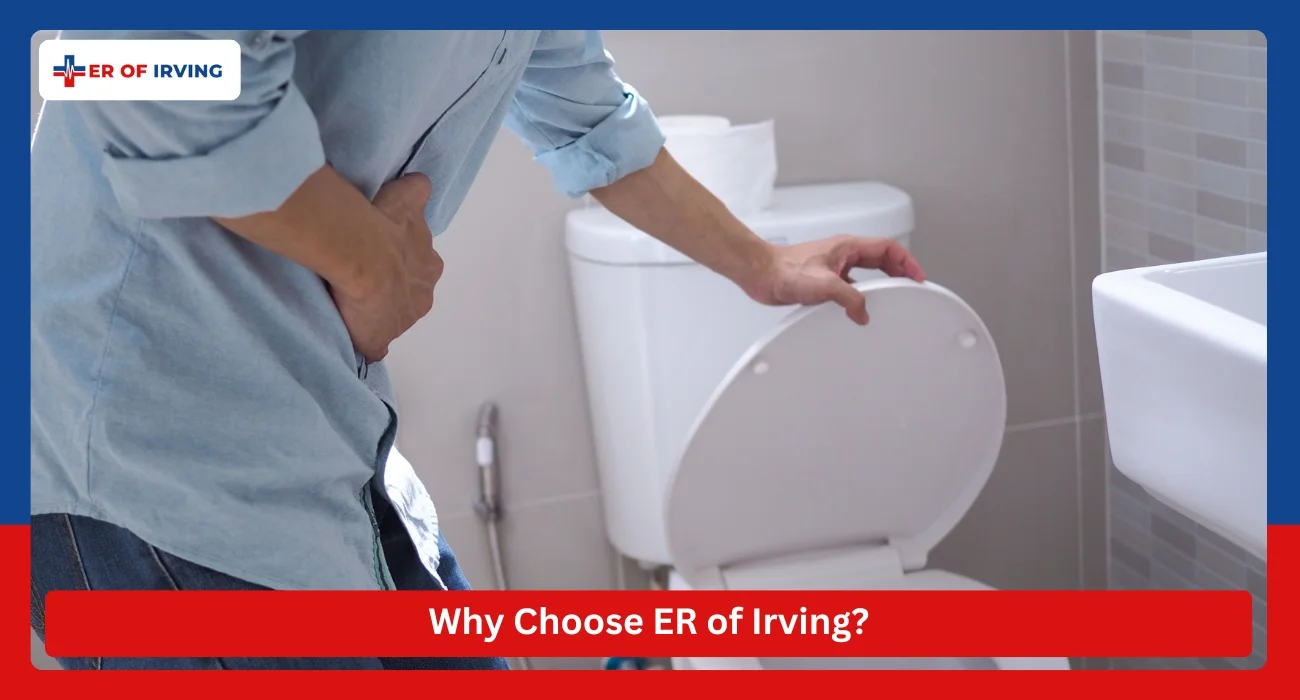
At ER of Irving, we prioritize your health with expert emergency evaluation and diagnostic services. Our team is available 24/7 to provide initial stabilization and pain management, coordinating with specialists for referrals as needed. We adhere to strict guidelines, focusing on emergency care rather than ongoing treatment, ensuring compliance and patient safety. Visit us for prompt attention to bladder distention and related concerns.
FAQs
What causes bladder distention?
Bladder distention can result from urinary tract obstructions, neurological disorders, infections, or lifestyle factors like excessive fluid intake. ER of Irving offers emergency evaluation to identify the cause.
What are the symptoms of bladder distention?
Symptoms include persistent abdominal pressure, frequent urination with little output, incontinence, and lower back pain. Visit ER of Irving for initial assessment and specialist coordination.
How is bladder distention diagnosed?
Diagnosis involves urinalysis, post-void residual tests, and imaging like ultrasound. At ER of Irving, we provide diagnostic services and refer patients to specialists for further care.
What treatment options are available for bladder distention?
Treatment may include catheterization, antibiotics, or lifestyle changes, with ER of Irving offering emergency stabilization and specialist referrals for ongoing management.
Why should I visit ER of Irving for bladder distention?
ER of Irving provides 24/7 emergency care, initial assessment, and coordination with specialists, ensuring timely and effective care for bladder distention.

